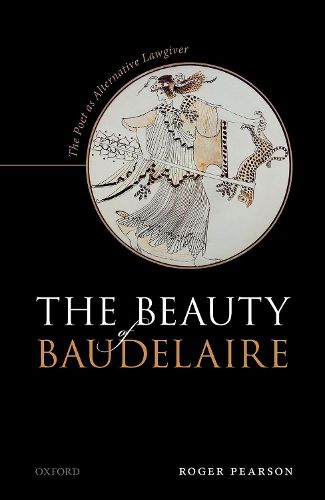Readings Newsletter
Become a Readings Member to make your shopping experience even easier.
Sign in or sign up for free!
You’re not far away from qualifying for FREE standard shipping within Australia
You’ve qualified for FREE standard shipping within Australia
The cart is loading…






This book offers the first comprehensive close reading in any language of the complete works of Charles Baudelaire (1821-1867). Taking full account of his critical writings on literature and the fine arts, it provides fresh readings of Les Fleurs du Mal and Le Spleen de Paris. It situates these works within the context of nineteenth-century French literature and culture and reassesses Baudelaire’s reputation as the ‘father’ of modern poetry. Whereas he is traditionally considered to have rejected the public role of the writer as moralist, educator, and political leader and to have dedicated himself instead to the exclusive pursuit of beauty in art, this book contends not only that he rejected Art for Art’s sake but that he saw in ‘beauty’–defined not as an inherent quality but as an effect of harmony and rich conjecture–an alternative ethos with which to resist the tyrannies of ideology and conformism.
$9.00 standard shipping within Australia
FREE standard shipping within Australia for orders over $100.00
Express & International shipping calculated at checkout
This book offers the first comprehensive close reading in any language of the complete works of Charles Baudelaire (1821-1867). Taking full account of his critical writings on literature and the fine arts, it provides fresh readings of Les Fleurs du Mal and Le Spleen de Paris. It situates these works within the context of nineteenth-century French literature and culture and reassesses Baudelaire’s reputation as the ‘father’ of modern poetry. Whereas he is traditionally considered to have rejected the public role of the writer as moralist, educator, and political leader and to have dedicated himself instead to the exclusive pursuit of beauty in art, this book contends not only that he rejected Art for Art’s sake but that he saw in ‘beauty’–defined not as an inherent quality but as an effect of harmony and rich conjecture–an alternative ethos with which to resist the tyrannies of ideology and conformism.